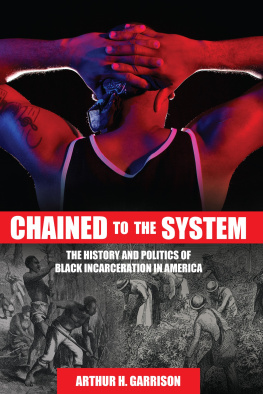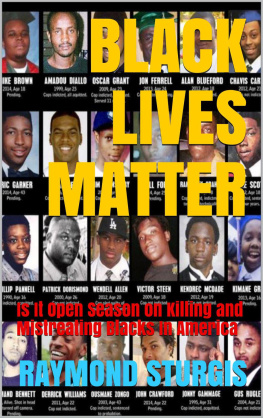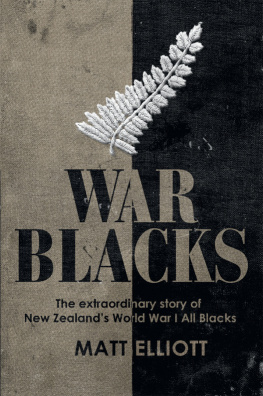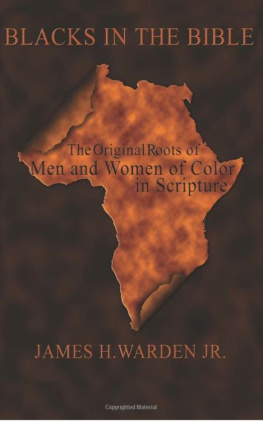THE ASHGATE RESEARCH COMPANION TO BLACK SOCIOLOGY
As we deepen into the twenty-first century, there is abundant evidence that Black Sociology is the original American sociology, despite the dominant narratives of the discipline. The contents of Wright II and Wallaces Ashgate Research Companion to Black Sociology show that not only has Black Sociology continued since its late nineteenth century beginnings, but, that it is thriving and continuously pushing a rigorous and impactful sociology across every substantive area of the discipline.
David L. Brunsma, Virginia Tech, USA
In this necessary and expansive volume, Earl Wright II and Edward V. Wallace build upon the great work and legacy of W.E.B. Du Bois. Drawing on Du Boiss sociological scholarship and agenda as the leader of the Atlanta Sociological Laboratory, this impressive book successfully brings together a wonderful array of scholars to deepen our understanding and appreciation for Black Sociology.
Marcus Anthony Hunter, UCLA, USA and author of Black Citymakers: How the Philadelphia Negro Changed Urban America
The Ashgate Research Companion to Black Sociology is a must-read for anyone teaching introductory sociology, race relations or any related subject. The editors have done a wonderful job of finding young creative scholars to cover contemporary topics such as parental incarceration and its effects on children, stand-your-ground laws, and the effects of job stratification on the working class to name a few. The clustering of the topics along with the origins of Black or Du Boisian Sociology is extremely relevant to the societal changes currently taking place around the world.
Obie Clayton, Clark Atlanta University, USA
The Ashgate Research Companions are designed to offer scholars and graduate students a comprehensive and authoritative state-of-the-art review of current research in a particular area. The companions editors bring together a team of respected and experienced experts to write chapters on the key issues in their speciality, providing a comprehensive reference to the field.
The Ashgate Research Companion to Black Sociology
Edited by
EARL WRIGHT II
University of Cincinnati, USA
EDWARD V. WALLACE
University of Cincinnati, USA
First published 2015 by Ashgate Publishing
Published 2016 by Routledge
2 Park Square, Milton Park, Abingdon, Oxon OX14 4RN
711 Third Avenue, New York, NY 10017, USA
Routledge is an imprint of the Taylor & Francis Group, an informa business
Copyright Earl Wright II, Edward V. Wallace and the contributors 2015
Earl Wright II and Edward V. Wallace have asserted their right under the Copyright, Designs and Patents Act, 1988, to be identified as the editors of this work.
All rights reserved. No part of this book may be reprinted or reproduced or utilised in any form or by any electronic, mechanical, or other means, now known or hereafter invented, including photocopying and recording, or in any information storage or retrieval system, without permission in writing from the publishers.
Notice:
Product or corporate names may be trademarks or registered trademarks, and are used only for identification and explanation without intent to infringe.
British Library Cataloguing in Publication Data
A catalogue record for this book is available from the British Library.
Library of Congress Cataloging-in-Publication Data
Wright, Earl, II.
The Ashgate research companion to Black sociology / by Earl Wright II and
Edward V. Wallace.
pages cm
Includes bibliographical references and index.
ISBN 9781472456762 (hardback : alk. paper) ISBN 9781315612775 (ebook) ISBN 9781317044017 (epub) 1. African Americans Social conditions. 2. African Americans Race identity. 3. Sociology United States.
I. Wallace, Edward V. II. Title.
E185.86.W952 2015
305.896073dc23
2015004380
ISBN: 9781472456762 (hbk)
ISBN: 9781315612775 (ebk-PDF)
ISBN: 9781317044017 (ebk-ePUB)
Contents
Earl Wright II and Edward V. Wallace
Jennifer Padilla Wyse
Darwin Fishman
Farrah Gafford Cambrice
Sheridan Quarless Kingsberry, Sachin Karnik, Natalie M. Fountain and Kelly Wetzel
Clare Walsh
Tomeka Davis and Taralyn Keese
Ervin (Maliq) Matthew and Littisha Bates
Katrinell M. Davis
Lori Latrice Martin, Hayward Derrick Horton and Teresa A. Booker
Claire M. Norris, Krista D. Mincey, Brian Turner and Makeda Roberts
Angelique Harris, David Nelson, Kimberly Salas Harris, Barbara A. Horner-Ibler and Edith Burns
Marye Bernard and Malinda R. Conrad
Yvonne Wesley
Edward V. Wallace
Omotayo O. Banjo, Guy-Lucien Whembolua, Shewanee Howard-Baptiste, Nathaniel Frederick II and Jerod D. Lindsey
Meagan Sylvester
Timothy Broughton and Komanduri S. Murty
Marci Bounds Littlefield
Derrick R. Brooms
List of Figures and Tables
Figures
Tables
List of Contributors
Omotayo O. Banjo is an Assistant Professor in the Department of Communication at the University of Cincinnati. Her research focuses on racial representations in the media, with a particular interest in race-oriented entertainment. Dr. Banjo also examines the impact of media messages on individuals perceptions of self and others.
Littisha Bates is an Assistant Professor of Sociology and faculty affiliate of the Department of Africana Studies at the University of Cincinnati. Her current research examines racial/ethnic differences in educational outcomes, with added focus on moving beyond customary white/Black comparisons to include a number of racial/ethnic groups. Her work also examines specific ethnic groups as opposed to broad pan-ethnic categories. She is also examining within-group differences across socioeconomic strata as well as within-socioeconomic strata differences across racial/ethnic groups.
Marye Bernard holds a doctorate of nursing practice and is a family nurse practitioner at the Regional Medical Center in Memphis, Tennessee. She is an AECT-certified HIV/AIDS educator and one of the leading public speakers on the topic.
Teresa A. Booker is a political scientist and tenured Assistant Professor of Africana Studies at John Jay College of Criminal Justice (CUNY) in New York. Her research interests include peacekeeping, peacemaking, restorative justice and the implementation of public policy. In addition to authoring numerous peer-reviewed publications, her edited book Race and Urban Communities was published in 2014.
Derrick R. Brooms is Assistant Professor of Sociology at the University of Louisville. He also is a Task Force Member to the African American Male Initiative Program. His research interests include a focus on museums and contemporary exhibits on African American history and culture. His research also focuses on African American males by examining their educational experiences in both secondary and post-secondary institutions, along with their relationships and identity development.






